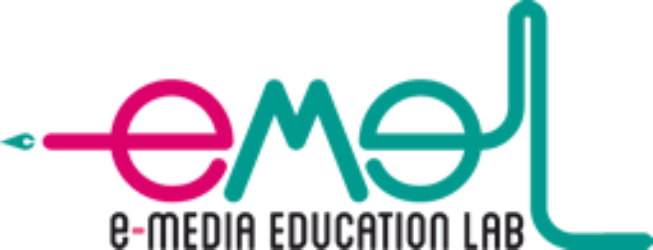Training evaluation
If you want to enhance and develop evaluation methods and tools in your teacher’s training, this is the place where you will find useful materials and tools!
Overview
Welcome into the evaluation toolkit of e-Media Education Lab.
This space has been conceived as a set of materials available for teacher trainers (in-service and initial training) to enhance evaluation practices. These materials have been developed during the e-MEL experimentation. Trainers and researchers developed and experimented a set of methods and tools. They decided to deliver a dedicated space on e-MEL platform for other trainers.
If the need to evaluate can cover a very wide range of items and dimensions, it appears as an evidence in most of training contexts. Behind this evidence, some crucial questions have to be reflected before simply replicating formal classical “questionnaires”.
Depending the objectives you can assign to evaluation we invite you to engage new evaluation dimensions and ideas and share them also with other trainers We strongly believe that developing new evaluation practices can help and improve training quality but also can be seen as a training process in itself.
This toolbox is not a simple collection of “ready-to-use” material. Diversity of training context and topics need evaluation to be closely linked and adapted with the reality. Although, you will find as examples, concrete tested and evaluated training tools closely linked to the training scenarios distributed by e-MEL.
![]() Download the e-MEL Evaluation Toolkit (full version – 10Mb)
Download the e-MEL Evaluation Toolkit (full version – 10Mb)
What do you find in the toolbox?
The toolbox is organized around 5 main headings:
-
1. Introduction: why evaluation?
A short text trying to contextualize the role and the sense of evaluation. This introduction gives you also some advices about how to use the materials and tools available on the e-MEL platform.
-
2. Competences evaluation prototypes
This part of the toolbox is competences based evaluation method and tools.
You’ll find six different models (we called ‘prototype’). Each prototype is focused on a specific range of competences (analysis competences, production competences, didactic analysis competences, didactic production competences) and show you several manners to evaluate it, with possible variants when it’s relevant. For each prototype, hyperlinks will also guide you to e-MEL experimentations that used this specific prototype as model for their competence evaluation test. You can use it as models to be adapted in your own trainings. -
3. Training evaluation
This part of the toolbox is delivering guidelines and different concrete tools presented as models to evaluate a training experience for participants and trainer based on e-MEL training scenarios approach. The overall aim of this evaluation is to evaluate different dimensions such as quality of methods, resources, activities and tools, usability, participation and transferability.
Even if these materials can be fully used, it will need some adaptations depending the dimensions you want to evaluate. Within this overall framework, trainers’ and trainee’s point of views are particularly relevant to evaluate the training experience. Connected to this section, you will have pre- and post- questionnaires for trainees and a logbook model for trainers. -
4. External resources and links
If you need more guidance or other resources related to evaluation, we regrouped a set of selected external resources (websites, academic papers, books, etc.) to explore and get more information about evaluation
-
5. e-MEL materials
You will find in this part of the toolbox all the examples, questionnaires, materials developed during e-MEL experimentation. Some of these materials are implemented in other parts of the e-Lab but are regrouped here as a one-stop shop for e-MEL evaluation materials.

